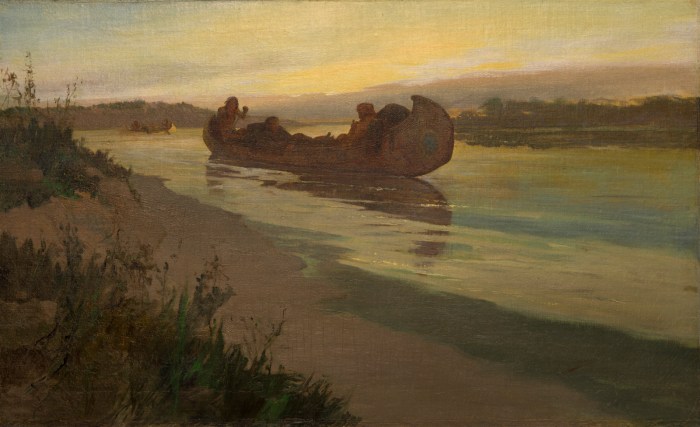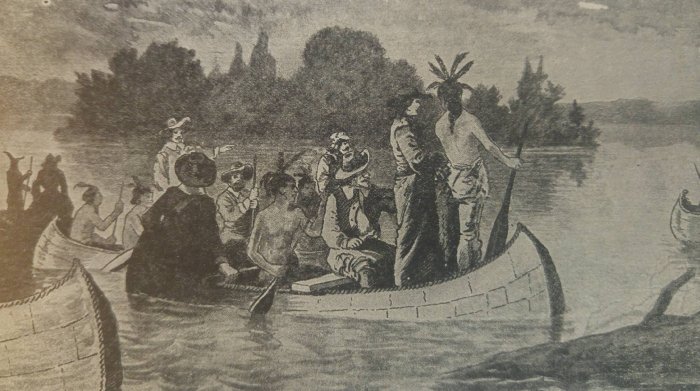The journeys of marquette joliet and la salle – The journeys of Marquette, Joliet, and La Salle stand as pivotal moments in the exploration of North America, shaping the course of history and leaving an enduring legacy. Their expeditions pushed the boundaries of geographical knowledge, established trade routes, and fostered cultural exchange, forever altering the landscape of the continent.
Marquette, a Jesuit missionary, and Joliet, a fur trader, embarked on their voyage in 1673, mapping the Mississippi River and encountering diverse Native American tribes. La Salle, a French explorer, followed in their footsteps, venturing down the Mississippi to the Gulf of Mexico and searching for a route to the Pacific Ocean.
The Journeys of Marquette, Joliet, and La Salle: The Journeys Of Marquette Joliet And La Salle

French exploration in North America was driven by a desire to expand their empire, find new trade routes, and spread Catholicism. Marquette, Joliet, and La Salle were instrumental in these early explorations, mapping new territories and establishing important trade connections.
Marquette and Joliet’s Voyage (1673), The journeys of marquette joliet and la salle
In 1673, Jacques Marquette and Louis Jolliet embarked on a journey to explore the Mississippi River. They traveled from Green Bay, Wisconsin, down the Wisconsin River and into the Mississippi, becoming the first Europeans to navigate the river’s upper reaches.
Their expedition provided valuable information about the geography and Native American tribes of the region.
La Salle’s Expeditions (1679-1682)
René-Robert Cavelier, Sieur de La Salle, led several expeditions to explore the Mississippi River and find a route to the Pacific Ocean. In 1682, he reached the mouth of the Mississippi and claimed the entire Mississippi Valley for France. La Salle’s expeditions played a crucial role in establishing French dominance in North America.
Comparisons and Contrasts
Marquette and Joliet’s expedition was primarily focused on exploration and mapping, while La Salle’s expeditions were more ambitious, aiming to establish trade routes and claim new territories. Marquette and Joliet traveled by canoe, while La Salle used a combination of canoes and boats.
Both expeditions faced challenges from Native American tribes, but La Salle’s expeditions were more confrontational.
Impact on Native American Communities
French exploration had a significant impact on Native American communities. The introduction of European diseases and trade goods disrupted traditional ways of life. Explorers often relied on Native American guides and interpreters, but also competed with them for resources and land.
Legacy and Historical Significance
Marquette, Joliet, and La Salle’s journeys were pivotal in shaping the history of North America. Their explorations expanded European knowledge of the continent, facilitated trade, and laid the foundation for French colonial claims. Their legacy continues to inspire explorers and historians today.
FAQ Guide
What were the primary motivations for French exploration in North America?
Economic gain, religious zeal, and the desire to expand their empire.
How did Marquette and Joliet’s expedition contribute to geographical knowledge?
They mapped the Mississippi River and provided valuable information about the region’s geography and Native American tribes.
What was the significance of La Salle’s expeditions?
He explored the Mississippi River to its mouth, established trade routes, and claimed the Louisiana Territory for France.

